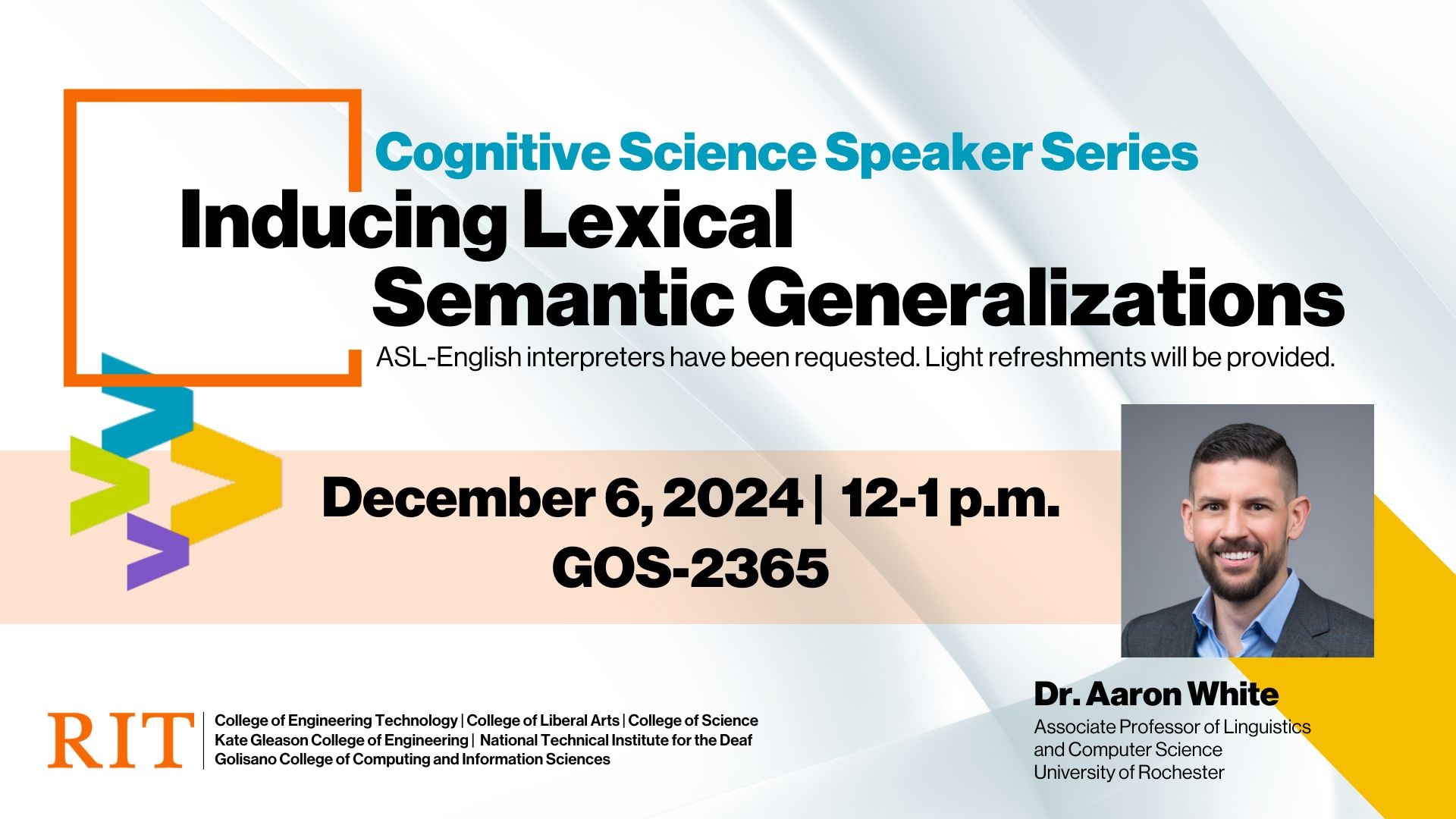Cog Sci Speaker Series: Inducing Lexical Semantic Generalizations

Presenter: Dr. Aaron White
Title: Inducing Lexical Semantic Generalizations
Abstract: Gaps in lexically triggered inference patterns have long been important in semantic theory, suggesting constraints on concepts that can be lexicalized. Clear examples are found in closed classes, like the absence of non-conservative determiners or non-convex color terms. However, identifying similar gaps in open classes is more difficult, even in well-studied languages.
This challenge may stem from two possibilities: open class items might not exhibit the same constraints as closed classes, or they might, but other properties obscure these patterns. High-frequency open class items often show polysemy, mixing distinct inference patterns, which can create gradience in judgments.
In this talk, I explore the second possibility, examining whether constraints on lexicalization are revealed by appropriately modeling polysemy and gradience in inference judgments. I focus on veridicality, negation-raising, belief, desire, and intention inferences, which have been linked to core lexical properties and syntactic distribution.
I present four datasets of over 1,000 English predicates, capturing their inference patterns and syntactic acceptability. A clustering model reveals 25 distributional and inferential patterns—a small subset of possible combinations. Further analysis using matrix factorization shows these can be decomposed into 10 primitive patterns, closely tied to concepts like representation, preference, and evaluation, which correlate with syntactic structures.
Bio: Aaron Steven White is an Associate Professor of Linguistics and Computer Science at the University of Rochester, where he directs the Formal and Computational Semantics lab (FACTS.lab). His research investigates the relationship between linguistic expressions and conceptual categories that undergird the human ability to convey information about possible past, present, and future configurations of things in the world. His work has appeared in a wide variety of linguistics, cognitive science, and natural language processing venues, including Semantics & Pragmatics, Glossa, Language Acquisition, Cognitive Science, Cognitive Psychology, Transactions of the Association for Computational Linguistics, and Empirical Methods in Natural Language Processing.
Event Snapshot
When and Where
Who
Open to the Public
Interpreter Requested?
Yes









